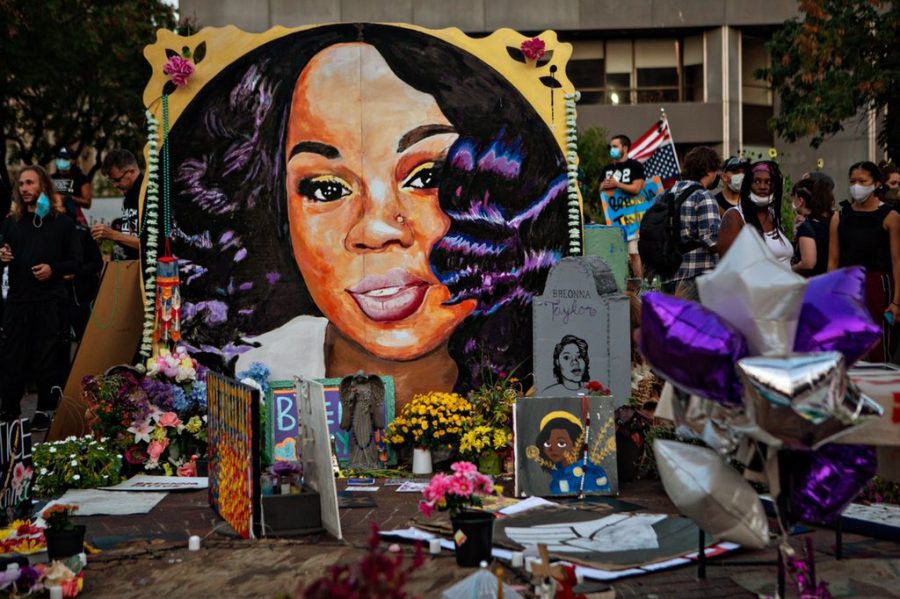One Year Since Breonna Taylor’s Death, More Change is Needed
March 13, 2021, marks one year since police killed Breonna Taylor. Taylor was a 26-year-old emergency room technician living in Louisville, Kentucky. On March 13, 2020, officers in plainclothes barged into her apartment during a midnight raid. Taylor’s boyfriend, Kenneth Walker, who was at the apartment that night, claims that police did not announce themselves upon entry. The officers contest this point. Walker mistook police for intruders and shot his firearm once. In return, the officers blindly fired a barrage of bullets into Taylor’s home. Breonna Taylor was struck and killed by several of the officers’ bullets.
Unfortunately, the responses to Taylor’s death have fallen short in addressing the systemic issues at hand. Thus far, the positive changes we have seen, while a step in the right direction, are on too small a scale; police departments must make significant adjustments to increase accountability and prevent unnecessary violence.
In the past year, protests have erupted across the nation against police brutality and systemic racism. Protesters chanted “Say Her Name,” which references an organization created to bring awareness to Black women who are victims of police brutality, like Breonna Taylor. Historically, the stories of women subjected to police violence are rarely brought to the forefront of society’s issues. However, activists have worked to ensure that Taylor’s case is highly visible to the masses, though many other cases remain relatively unknown. The public doesn’t readily know the names and stories of women like Atatiana Jefferson, Charleena Lyles and Aiyana Stanley-Jones.
In 2020, the deaths of Breonna Taylor and George Floyd incited outrage. People demanded justice, but this outrage wasn’t met with enough legal and departmental change. The developments that were made were too localized to cause the widespread reform necessary to make sure these unjust deaths don’t happen in our cities.
As of June 2020, Breonna’s Law has taken effect, banning the use of “no-knock” warrants in Louisville, Kentucky. Three of the officers involved in Taylor’s death were fired, although it took 10 months for all three of them to face termination. However, none of the officers have faced any charges for Taylor’s death to date. In September 2020, officer Brett Hankinson was indicted for wanton endangerment, which is defined as an individual “engag[ing] in conduct which creates a substantial danger of death or serious physical injury to another person.”
According to the Police Integrity Research Group, between 2005 and 2019, there were 13,000 deadly police shootings in the United States. Of these, 106 officers were indicted. Why are officers charged so rarely in fatal shootings? Qualified immunity protects government officials, including police officers, from lawsuits where the plaintiff’s rights are violated, except in cases where the violation is “clearly established.” The plaintiff must prove that “every reasonable official would understand that what he or she is doing is unconstitutional.” The first city in the country to overturn qualified immunity was New York City on March 25, 2021.
In September 2020, Taylor’s family was granted a $12 million settlement in a wrongful death lawsuit against the city of Louisville. The settlement also included changes in policing practices including “more oversight by top commanders … mandatory safeguards that were common practice in the department but were not followed the night of the March 13 raid [and] an early warning system to flag officers who have been accused of excessive force.”
Will these proposed changes have a meaningful effect on preventing deaths in the future? How can reiterating the previously standard practice safeguards which were already in place the night of Taylor’s death ensure compliance in the future? Is the narrow lens of the early warning system enough to quell this problem, or does it only look at one piece of this complicated issue?
Trust is integral for a community to function peacefully. Police have higher accountability because they’re armed and in a position of authority. There should be a balance between a community that follows the law and the police that uphold the law and are meant to serve as a model or example. Mutual respect and a deeper understanding is key. In order for law enforcement to protect and serve Americans, it must understand and repair the relationship between the police and the Black community. Police departments should spend time and energy prioritizing prevention and accountability rather than only making small-scale and straightforward changes.
All cities need to look deeply and critically within their police departments. They need to ask themselves how they can optimize their practices to promote accountability and to fairly and effectively benefit all members of the community they represent. The tragedy of Breonna Taylor’s death reminds us that we have an obligation to keep these issues in the forefront of our minds. Her death and the deaths of other victims like Atatiana Jefferson, Charleena Lyles and Aiyana Stanley-Jones should be commemorated with a commitment to ensuring that police brutality and systemic racism become a practice of the past. Breonna Taylor deserves justice.
Giovanna Rafanello, FCRH ’23, is a psychology major from Madison, N.J.








































































































































































































